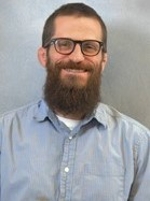IPIA Faculty Spotlight | Paul Ebner
Paul Ebner, Animal Sciences professor takes his expertise where it’s needed most.
 Paul Ebner’s career as a professor of animal sciences and his commitment to international extension both started to take shape in a South American village that had neither electricity nor running water. After earning an undergraduate degree in political science at Kalamazoo College, Ebner became a Peace Corps Volunteer in Paraguay.
Paul Ebner’s career as a professor of animal sciences and his commitment to international extension both started to take shape in a South American village that had neither electricity nor running water. After earning an undergraduate degree in political science at Kalamazoo College, Ebner became a Peace Corps Volunteer in Paraguay.
Farm animals weren’t a common sight in his home city of Livonia, Michigan, a suburb of Detroit, but on another continent in a place dependent on nonmechanized agriculture, Ebner began to recognize the importance of livestock production. He arranged to pick up some well-bred pigs from the national agriculture college, which he brought back in feedbags on hot buses. Soon after, he also secured some chickens. He acquired books on how to raise and feed the animals. “And I found out you can go to school for these things,” he says.
He completed master’s and doctoral degrees in animal science at the University of Tennessee and a postdoc in microbiology and immunology at the Louisiana State University Health Sciences Center.
When Ebner joined Purdue’s Animal Sciences faculty in 2006, the College of Agriculture was expanding study abroad and international extension opportunities. He joined Mark Russell, professor of agricultural sciences education and communication, in a service-learning program in Romania in collaboration with Heifer International.
“So many times when I was in the Peace Corps, I thought, ‘I can’t believe I’m doing this,’” Ebner says. “That’s exactly the experience we want for our students. We want them to be more confident to do something bigger later — and they do.”
After multiple trips to Romania, Ebner was asked to lead Extension-type workshops in Afghanistan. He then joined a Purdue team that from 2013 to 2018 helped establish a new Department of Food Technology at Herat University. USAID funded the program, which is up and running with a full-time faculty and fully equipped teaching and research laboratory.
Now Ebner is focusing on Egypt, where USAID recently launched a five-year cooperative project with Cairo University and four U.S. land-grant universities, including Purdue. Together they’ll create a Center of Excellence for Agriculture in the Faculty of Agriculture at the Egyptian university. “The project is similar to Afghanistan but on a much bigger scale,” Ebner says.
“Projects like this are really about creating a framework where change can happen,” he explains. This summer Ebner will facilitate a series of workshops to better understand needs across the different stakeholder groups and initiatives within the complex project.
In that way, international extension is like extension in Indiana, Ebner says: “The county next to yours is different. You always have to look at people’s history, backgrounds, and desires and needs before you know realistically what you can do to help make things better. So whether it’s the county next door or Egypt, it’s the same process.”
He credits the Office of International Programs in Agriculture (IPIA) with support for study abroad and help with logistics in Afghanistan and Egypt.
“Food security issues are global,” he adds. “Purdue has tremendous resources, and we’re matching the best resources with the greatest need. Sometimes, that’s not the United States.”
Contact Information
Trish SipesProgram Assistant, International Programs in Agriculture
psipes@purdue.edu
(765) 494-5843